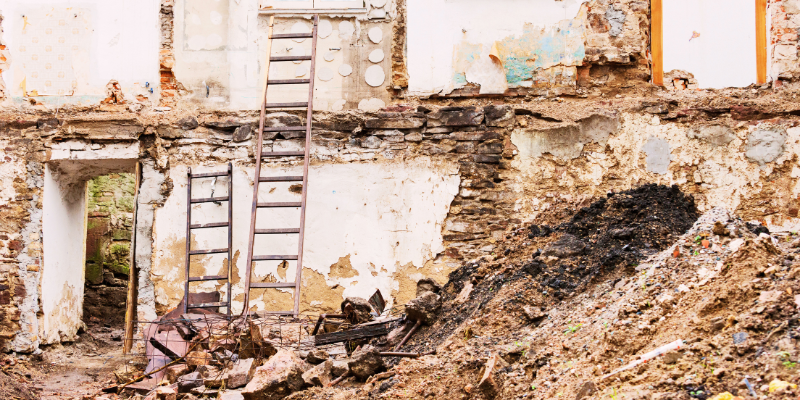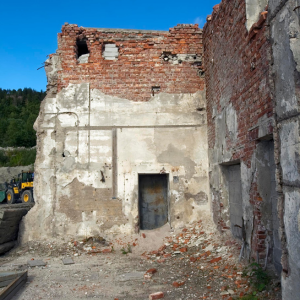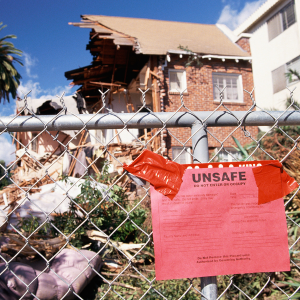
To decide if a facility is unfit for occupancy, Michigan property condemnation requires a series of legal and administrative measures. Property owners, prospective buyers, and real estate agents must understand condemnation rules. This tutorial discusses Michigan’s house condemnation standards, legal framework, inspection methods, and property owner remedies. Understand the condemnation procedure and plan to remedy safety violations or structural hazards.
Understanding Property Condemnation in Michigan
Understanding property condemnation in Michigan requires understanding the complex processes and laws that make properties unfit for use. Michigan condemnation involves close cooperation between property owners and government officials to meet legal requirements. Dialogue about condemned house requirements helps understand state and local laws.
Those seeking to prevent or avoid condemnation must also understand how property owners might interact with the law. This overview explains key elements of the condemnation process, preparing for a thorough look at each step and its criteria.
The Process of Condemnation
A property that is unfit for use or dangerous to public health and safety is condemned in Michigan. Government authorities use the state’s condemnation code to verify properties fulfill health and safety standards. A property is condemned after an inspection or series of inspections that assess structural integrity, sanitary conditions, and local construction codes.
If the property fails these evaluations, it may be condemned. Receiving a condemnation order might scare property owners. To navigate the procedure, you must comprehend each stage. A local authority inspection team first inspects the home. They must detect major habitability difficulties.
The property’s structure may be damaged by neglect or natural wear and tear, or mold may cause health dangers. After the inspection, the property owner receives an official notice listing the property’s violations of Michigan’s state and local codes. After receiving the notice, property owners can appeal or fix the authorities’ flaws.
Michigan condemnation orders can be challenged by showing that the issues can be fixed. Repair plans or agreements with the local government to set a schedule for necessary interventions may be required. If corrective efforts are done within the specified deadline and the property is declared safe, the condemnation status might be overturned, allowing owners to use their land.
If the issues are severe and beyond repair, owners may have to prepare for state eminent domain, where private properties are claimed for public use at fair compensation. Understanding the nuances of each stage can assist property owners in complying with municipal and state standards, protecting their rights.
Criteria for Condemnation in Michigan
Michigan’s condemnation process is based on health, safety, and welfare. Government agencies use the state’s comprehensive condemnation code to inspect the property. Structural integrity, health and sanitation, and occupant and neighbor safety are examined.
In emergencies like natural catastrophes or substantial fire damage, houses may be flagged for condemnation. Property evaluations prioritize structural integrity. Inspectors check for Michigan and local construction requirements.

Large fissures in walls or foundations, unstable roofing, or sloping floors indicate degradation. If such faults are common and dangerous, the property may be condemned. Health factors also affect Michigan condemnation standards.
A home must provide basic sanitary conditions. To ensure compliance, government agencies inspect plumbing, sewage, and ventilation systems. A home with broken plumbing or poor waste disposal can be condemned.
Safety is also a priority. To protect community health and safety, a site must be free of harmful items and severe insect infestations. Fire safety standards must be met, and homes without smoke detectors or blocked emergency exit routes can be quickly inspected. Michigan’s condemnation legislation provides standards, informs, and allows property owners to fix problems.
After government authorities discover the issues, property owners receive a detailed condemnation order explaining the decision. This injunction generally gives property owners a deadline to fix the problems. Failure to comply within the deadline could result in eminent domain by the state.
Property owners can plan, respond, and protect their rights by understanding these elements. Homeowners can prevent negative outcomes by understanding Michigan condemnation legislation and proactively seeking inspections or repairs to meet state and local requirements.
| Aspect of Condemnation | Evaluation Criteria | Property Owner Actions | Outcome |
|---|---|---|---|
| Structural Issues | Assessment of structural integrity, stability, and potential hazards | Perform necessary repairs or reinforcements | If compliant, condemnation may be reversed; if not, property may be demolished or acquired |
| Health Factors | Inspection of sanitary conditions, presence of pollutants or hazardous materials | Mitigate health threats, such as removing contaminants | Successful remediation may prevent condemnation; failure may lead to property seizure |
| Safety Concerns | Evaluation of fire safety, electrical systems, and accessibility issues | Upgrade safety features, such as installing smoke detectors or ensuring proper wiring | Compliance leads to lifting of condemnation; non-compliance could result in forced evacuation |
This table encapsulates the multifaceted approach to property condemnation in Michigan, highlighting the critical criteria and actions that influence outcomes for property owners.
If your Michigan home is at risk of condemnation due to safety or structural issues, we buy Michigan homes and other cities fast for cash, saving you time, stress, and costly repairs. To learn more about the process, read other FAQ’s here.
Legal Basis for Condemnation Proceedings
Michigan condemnation protects public safety and welfare through eminent domain and state law. These legal rules are essential for condemned property owners. Eminent domain lets the government take private land for public use with restrictions and compensation. This section examines Michigan’s eminent domain law and how property owners can protect their investments and rights.
Legal Guidance for Property Owners Facing Condemnation
Michigan property owners facing condemnation must understand the law to protect their interests. Condemnation law is complicated, but informed property owners can handle it. Legal statutes guarantee equitable remuneration to owners to prevent unjust deprivation of property value.
Beyond finances, property owners must know their state law rights and responsibilities, adding to their preparation. The right to appeal a condemnation order is crucial. Michigan homeowners can contest the state’s assessment of their property, sometimes requiring independent appraisals. Owners may query the government’s public need beyond monetary recompense.

They can stop proceedings if they can prove the condemning assumption is false or that alternative options were not examined. Property owners must also understand valuation. The state’s initial offer usually incorporates a market-based analysis. In negotiations, local real estate trends and similar sales can help owners get a reasonable price.
Property owners should know the condemnation directive timelines. Knowing the response or negotiating dates helps prevent delays that could prevent appeals or compensation modifications. Additionally, monitoring the state’s compliance with legal procedures is crucial. Government mistakes or deviations can be used to dispute the condemnation, but they need competent legal analysis.
Such instances benefit from Michigan property law attorneys who can identify legal errors and overreach. Legal implications go beyond quick replies. To avoid condemnation, proactive measures like property maintenance are helpful. Collaborations with construction specialists can help with remedial activities, including reversing condemnation decisions where possible.
In conclusion, property owners must actively participate in Michigan’s legal system, which balances public and private interests. A solid understanding of legal laws and proactive engagement with real estate and legal specialists can turn a stressful circumstance into a chance to protect one’s rights. Effectively navigating this legal maze protects financial interests and emphasizes the owner’s proactive role in Michigan’s evolving property landscape.
Instead of facing a long and costly legal battle over condemnation in Michigan, protect your peace of mind. Contact Blue Moon Acquisitions today.
Dealing with a Condemned Property
Michigan’s condemned property process can be intimidating for those unfamiliar with their legal status. If municipal authorities condemn a home, owners must know their rights and obligations and what to do.
This includes comprehending the legal ramifications and navigating the steps to address and maybe reverse a condemnation order. Understanding these factors helps homeowners work with state and local governments to protect their property.
Rights and Obligations of Michigan Homeowners Facing Condemnation
Understanding Michigan homeowners’ rights and obligations while dealing with condemned properties is essential to navigating the difficult terrain. Local authorities have condemned a home for health and safety reasons. Property owners must know their rights, including the right to know why the condemnation was made.
The inspecting authority usually sends a notice of specific violations of state and municipal construction and health codes. This detailed notification helps you identify issues and plan your next measures.
Homeowners must fix the concerns authorities specify within a certain deadline. If nothing is done, the state may acquire it through eminent domain. Homeowners must use competent construction specialists to examine and fix or enhance to satisfy standards. Legal obligations include ensuring the property does not endanger public safety or welfare. Maintaining the land protects its worth and community health under state law.
If you believe a condemnation order was issued incorrectly or due to inaccurate assessments, you can appeal it as a homeowner. Attorneys knowledgeable with Michigan property laws can help appeal the condemnation order. The attorney might help gather evidence or negotiate alternative solutions or adjustments. Proactive interaction can prevent escalation and provide relief, potentially reversing a condemnation if requirements are met.
The property owner’s duties include immediate and continuous interactions with authorities. This includes keeping up with local regulations and state code amendments and guaranteeing frequent property inspections to avoid difficulties. Compliance orders often require the disconnection of public services, but coordination with suppliers guarantees smooth operations. Staying informed of your duties helps you respond quickly and comply with state and local laws, protecting your property’s reputation.
Steps to Take if Your Home is Condemned
You must understand local government notifications before a Michigan house condemnation. This initial warning is critical because it explains the health and safety risks that lead to condemnation. Homeowners should first review this notification with qualified legal and building experts to find problems and remedies. Due to tight deadlines, delays may compound the issue.
After finding faults, licensed contractors who know state and municipal construction codes must be consulted. These specialists can estimate repair and improvement costs and schedules. Depending on the offenses, this may need basic repairs, roofing, or sanitary facility improvements. Michigan’s habitation inspection requires state-approved fixes. Addressing these concerns promptly prevents property rights loss and legal issues.

Communicating with government officials is another stage. Open communication with code enforcement officials or other local body representatives allows for negotiations or deadline extensions. This conversation is crucial for clarifying and scheduling follow-up inspections to verify issue resolution. Understanding your eligibility for extensions or phased compliance will help if you can’t make the deadline.
Along with physical rectifications, you should investigate your legal options, especially if you can fight the condemnation. Property owners can appeal or request a hearing, which frequently gives them more time to remedy issues or oppose the condemnation. Legal advice can advise on Michigan property law precedents and defenses, which can delay or improve outcomes.
Finally, recognizing the broader consequences of house condemnation helps you plan for future circumstances. This includes accepting eminent domain compensation rights, protecting money, and considering alternate housing. Understanding these phases helps homeowners solve urgent problems and prepares them for long-term property management and community connections, reaffirming their role in public welfare.
If your Michigan home has been condemned and the repair costs feel overwhelming, we buy houses in Detroit and nearby cities in Michigan so you can move forward quickly and hassle-free.
A Practical Guide for Michigan Homeowners Facing Property Condemnation
Property condemnation in Michigan can be scary for homeowners. Understanding the process and getting help are key. This guide covers condemnation resources and local government support. Homeowners can learn how to handle private property disputes and the public condemnation system. Public and private resources guarantee informed decision-making throughout. Equipping individuals with this information aids property management and community development in Michigan.
Support and Resources for Michigan Homeowners Facing Condemnation
Michigan homeowners facing property condemnation need a network of resources. Condemnation orders present legal, financial, and logistical challenges for residents. Public and commercial resources and local government support are abundant. Affected property owners want quick, appropriate information on their rights and obligations. Residents can learn how to handle the problem by consulting lawyers and housing advocates.
Michigan’s public resources help homeowners endure condemnation. Residents can grasp public processes by receiving extensive information on private property rights and state regulations from government entities. Housing authorities routinely host property management and legal rights workshops and seminars for homeowners. These seminars are especially useful for people unfamiliar with local laws and condemnation requirements. Public documents from authorities like the Michigan State Housing Development Authority (MSHDA) can also shed light on properties’ past compliance or shortcomings.
Nonprofits and legal aid services are available to Michigan homeowners in addition to government relief. To handle local authority issues amicably, these organizations provide legal, financial, and mediation assistance. Financial counseling is crucial because residents may need to spend a lot on repairs or legal fees to resolve condemnation issues. Financial grants or low-interest loans might help mitigate this burden and fix shortcomings quickly.
Legal specialists can help homeowners challenge unlawful condemnation orders, protecting their rights. Michigan property law attorneys can create strategic interventions that comply with local and state laws and benefit residents. The ability to get meaningful legal help can determine whether a property owner can appeal a condemnation order.
Peer support networks give encouragement and practical help. Meeting other homeowners who have faced similar issues might offer emotional support and system navigation tips. These networks share information about reliable contractors, good lawyers, and efficient government resource access through internet forums or local community groups.
Michigan homeowners can face condemnation orders with a coordinated approach using public and private resources. Residents can manage property condemnation and participate in community development by being informed, getting legal advice, and using community resources. Knowing and using these tools helps Michigan property owners protect their rights and get the greatest results for their properties.
FAQs:
What is property condemnation in Michigan?
Property condemnation in Michigan is a legal process where a property is deemed unfit for use, often due to safety violations or structural issues, by governmental authorities following a detailed inspection.
What are the key factors considered in the condemnation process in Michigan?
Key factors include the property’s structural integrity, sanitary conditions, compliance with local construction codes, and overall safety concerning health and environmental standards.
How can property owners respond to a condemnation order in Michigan?
Property owners can respond by addressing the deficiencies noted by authorities, appealing the order with evidence of potential remediation, or negotiating a timeline for corrective actions.
What is the role of eminent domain in Michigan’s condemnation process?
Eminent domain allows the government to acquire private property for public use, given fair compensation, when the property is condemned and considered necessary for a public project.
What resources are available for property owners facing condemnation in Michigan?
Homeowners can access public resources like government agencies for information, legal aid services for guidance, and non-profit organizations for financial or mediation support. Engaging legal counsel can also be crucial.
Have questions or thinking about selling? Call us at (586) 209-3290 for a no-obligation offer and get started today!
Useful Michigan Blog Articles
- Delinquent HOA Dues in Michigan
- How To Successfully Sell Your Michigan Home With A Reverse Mortgage
- Can Medical Bills Force The Sale Of Your Home In Michigan?
- Selling Parents’ House After Death in Michigan
- Earnest Money Rules in Michigan
- Condemned House Requirements in Michigan
- How to Sell an Investment Property in Michigan
- Tax Implications of Selling Home in Michigan
- How to Avoid Closing Costs in Michigan
- How to Sell a Condemned House in Michigan
- Selling a Home to Pay Off Debt in Michigan
- Can Executor Of Will Sell Property in Michigan
- Can You Sell A House As Is Without Inspection in Michigan
- Selling A House To A Family Member in Michigan

